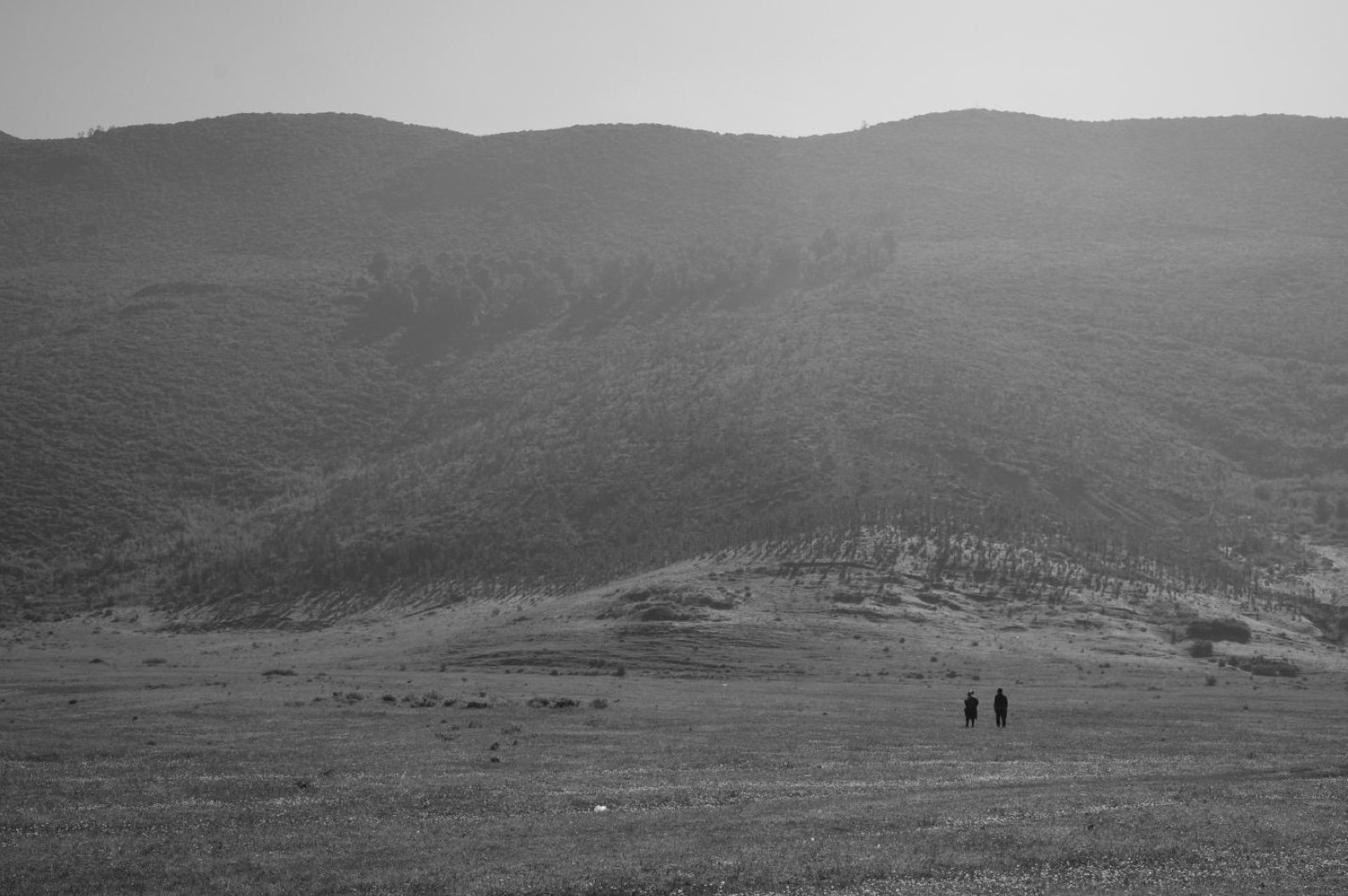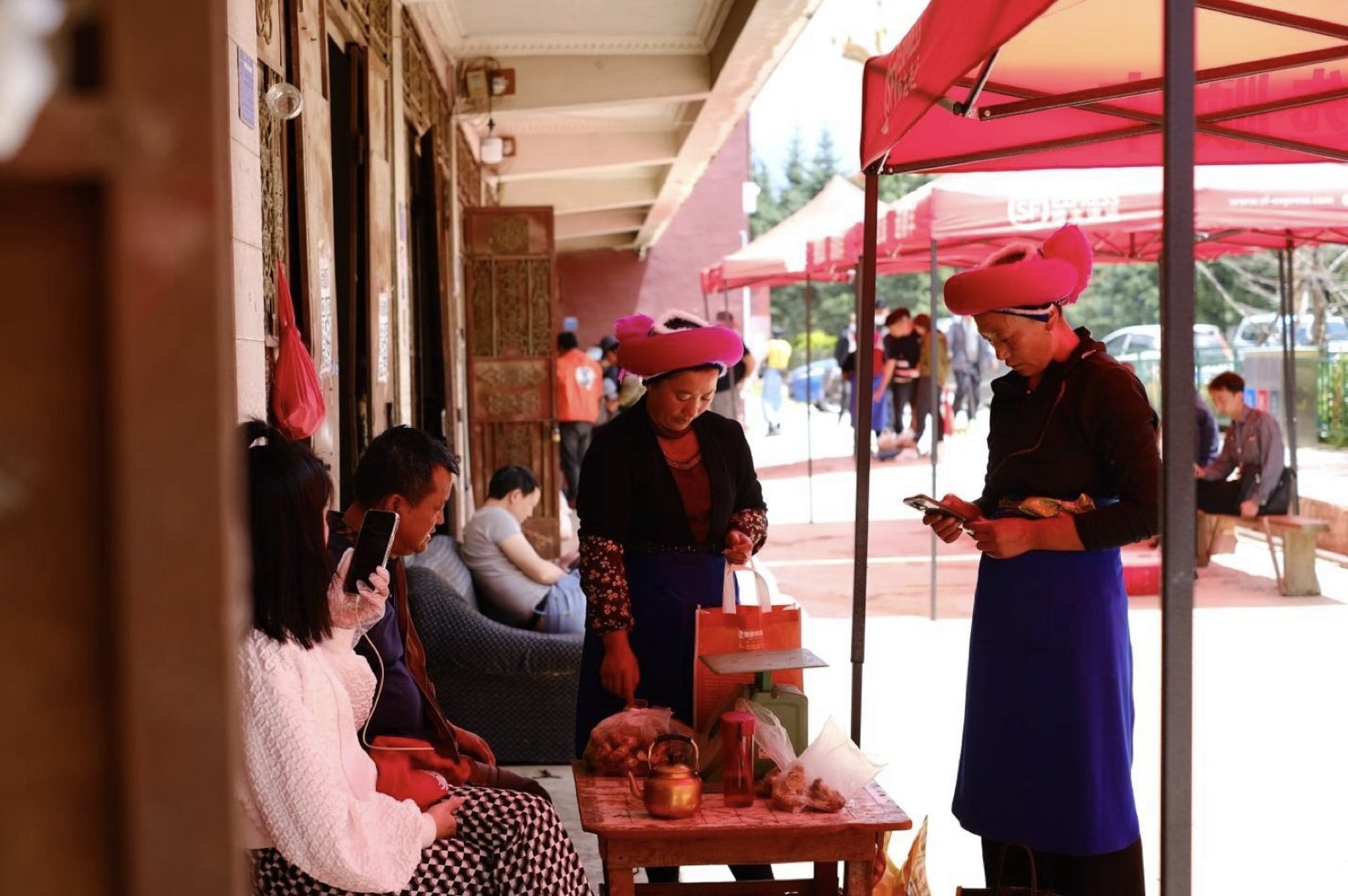Matsutake Pickers

Matsutake is a special type of edible mushroom found in Shangri-La, a city in Yunnan province, China. Due to its unique growth conditions, matsutake is highly sought after and more expensive than other species of fungi.
In Shangri-La, matsutake pickers—primarily women—put in significant physical effort to harvest these rare mushrooms. Their daily routine involves leaving home before sunrise, scaling steep mountain slopes, and searching the forest for mushrooms that emerged the night before. Pictured above is one of the mountain ranges where women search for matsutake.
The market for matsutake mushrooms demonstrates how cultural identities and practices influence consumption. The women's labor and their relationship with the land are commodified amid the global demand for matsutake. As the mushrooms are sold, their pickers’ culture is orientalized. Their work is displayed as exotic and foreign for the consumption of travelers and customers online.
Women in Shangri-La sell matsutake to a dealer (the man sitting at the table). The woman holding her phone is livestreaming to resell the mushrooms online.
The photo above is a poignant illustration of production and consumption on a larger scale. The women who harvest matsutake stand at the head of its complex supply chain and distribution network. Not only do they sell the mushrooms in person, they also rely on livestreaming and social media to publicize their traditions and reach a global audience. In capitalism, culture and identity are consumed along with the food and products we eat and use. However, land, natural resources, and human labor can be exploited in the process. I hope these photos invite reflection on how relationships between people, nature, technology, and capitalism shape our production and consumption practices.


